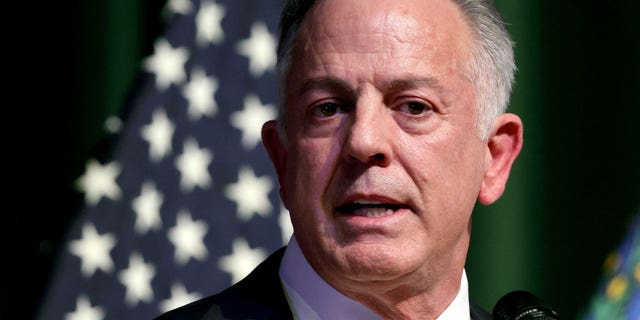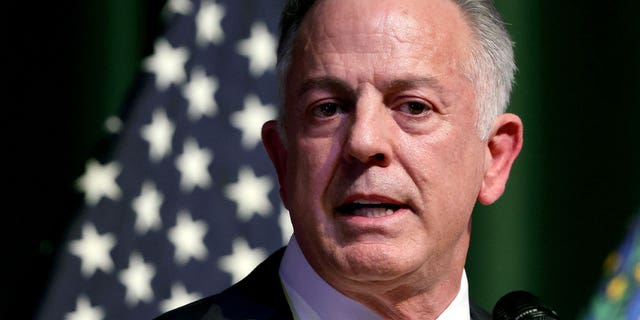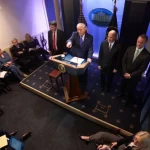
- Democrats in Nevada have rejected Republican Gov. Joe Lombardo’s proposal to use $3.2 million of unallocated COVID-19 funds to flush a waning private school scholarship program.
- In response, Lombardo announced that the AAA Scholarship Foundation will use its reserve funds this year, which could ensure that students have access to private school scholarships.
- Lombardo stressed that Nevada should support a private school scholarship program so that students would have school choices, which could allow them to stop attending other schools that fail their needs.
Nevada Gov. Joe Lombardo has what he calls a short-term plan to shore up a private school scholarship program, after Democratic legislators this week rejected a proposal that involved using unallocated federal money.
The Republican governor announced late Friday that the AAA Scholarship Foundation — a private scholarship organization at the center of Nevada’s school choice debate — has volunteered to use reserve funds to ensure that no students who qualify under state law lose access to scholarships this year. He said he was grateful to the organization.
“However, unless legislative Democrats work with us on a long-term solution, children will be forced out of their schools and back into the very schools that failed to meet their unique educational needs,” he said.
NEVADA GOV. JOE LOMBARDO SEEKS TO USE COVID FUNDS FOR WANING PRIVATE SCHOOL SCHOLARSHIP PROGRAM
The state’s Interim Finance Committee voted along party lines Wednesday, with Democrats opposing the governor’s previous proposal to use $3.2 million in federal coronavirus relief funds to maintain existing scholarships. The decision at the close of a marathon 12-hour hearing was another setback in Lombardo’s efforts to make school choice a priority in the state’s increasingly rare split-party government.
School choice generally refers to taxpayer-funded programs that pay for or expand access to other educational options including private or charter schools, home-schooling or hybrid models, though it can take many forms.

Republican Nevada Gov. Joe Lombardo gives remarks on Nov. 14, 2022. Lombardo announced that the AAA Foundation will use its reserve funds to ensure that students have access to scholarships this year. (Ethan Miller/Getty Images)
The debate over it has amplified divisions between Nevada’s relatively moderate Republican governor and the Democratic-controlled Legislature — echoing similar discord in statehouses around the country.
Nevada ranks toward the bottom of national rankings in per-pupil funding. Urban and rural schools face teacher shortages, underfunding, aging infrastructure and overcrowded classrooms. Most teacher unions and Democrats oppose school choice.
WHERE DOES ‘RESTORATIVE JUSTICE’ STAND IN SCHOOLS TODAY?
Proponents of school choice say it gives students more options, especially for those who don’t benefit from traditional public schools. Democratic lawmakers contend that using public funds for private schools will gut already resource-strapped public schools.
Lombardo originally wanted to expand eligibility and provide an additional $50 million for the state’s Opportunity Scholarship program, passed by the Republican-controlled Legislature in 2015. The program allows businesses to receive tax credits on donations that go toward the private and religious school tuitions of mostly low-income students.
CLICK HERE TO GET THE FOX NEWS APP
To get a scholarship for the upcoming school year, the governor’s office said eligible parents have to apply to the AAA Scholarship Foundation directly. The deadline is Sept. 11.
Leading Democratic legislators have argued that reserve funding within the Opportunity Scholarship program should be adequate to cover all currently enrolled students. They described the program as broken, noting that one scholarship-granting organization out of six obtained an outsized share of funding on a first-served basis.








